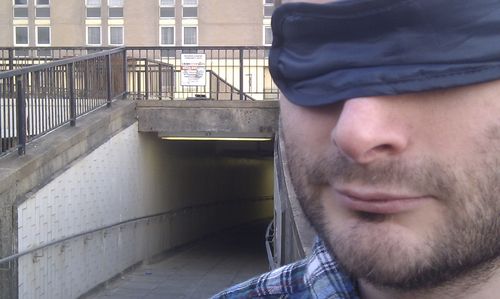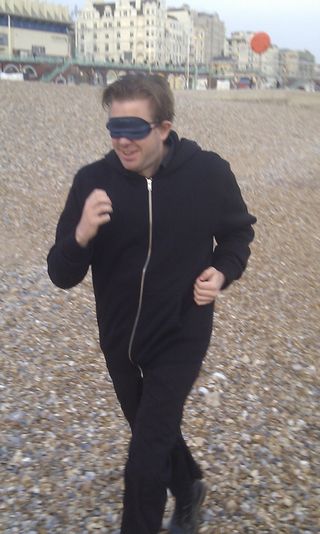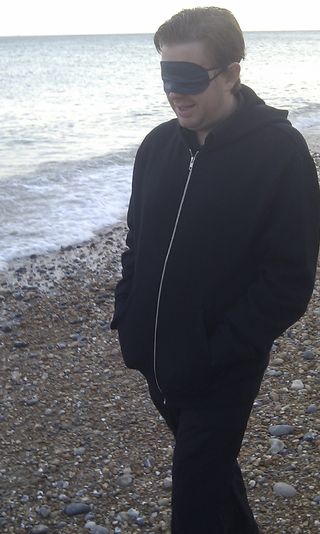Guy Debord defined psychogeography as "the study of the precise laws and specific effects of the geographical environment, consciously organized or not, on the emotions and behavior of individuals". The discipline is a mish-mash of ideas and experiments, many of them contradictory or in violent opposition. One common aspect is the idea of exploring one's enviroment by the means of experiments and play.
For some time I've been meaning to try a number of experiments in Brighton. It's a place I know well and one that I love exploring. It is also a very playful city, sometimes seeming almost alive. Tonight, with my accomplice Dr Evil, I tried a first experiment, blindfolded walking.

The idea was quite simple, taking turns to walk blindfolded along the seafront, with the guide suggesting course corrections and helping to avoid obstacles.
The experience was intense. Time and distance were hard to estimate while blindfolded. Above the constant noise of traffic, one could pick out passers-by, the scampering of dogs, but very few details. The sea was so quiet it could not be heard above the traffic. Dr Evil wondered about "all the silent things that you are missing."
Walking blind produced a strange relation to space. At first it felt as if one was just about to walk into something. It was very hard to judge how far away things were by sound alone. Time too changed, with the doctor estimating time passing twice as fast as it was. The subway was particularly interesting, as it distorted and focussed the sounds of the road above.
Finally, in homage to the film Intacto (video here) we took turns running blind.

Afterwards we felt tired and also more alert. We found ourselves more aware of potential trip hazards and had to stop ourselves from warning the (now sighted) other. It was an interesting way to experience a quiet sea-front. We're hoping to try this again in the town one evening.
